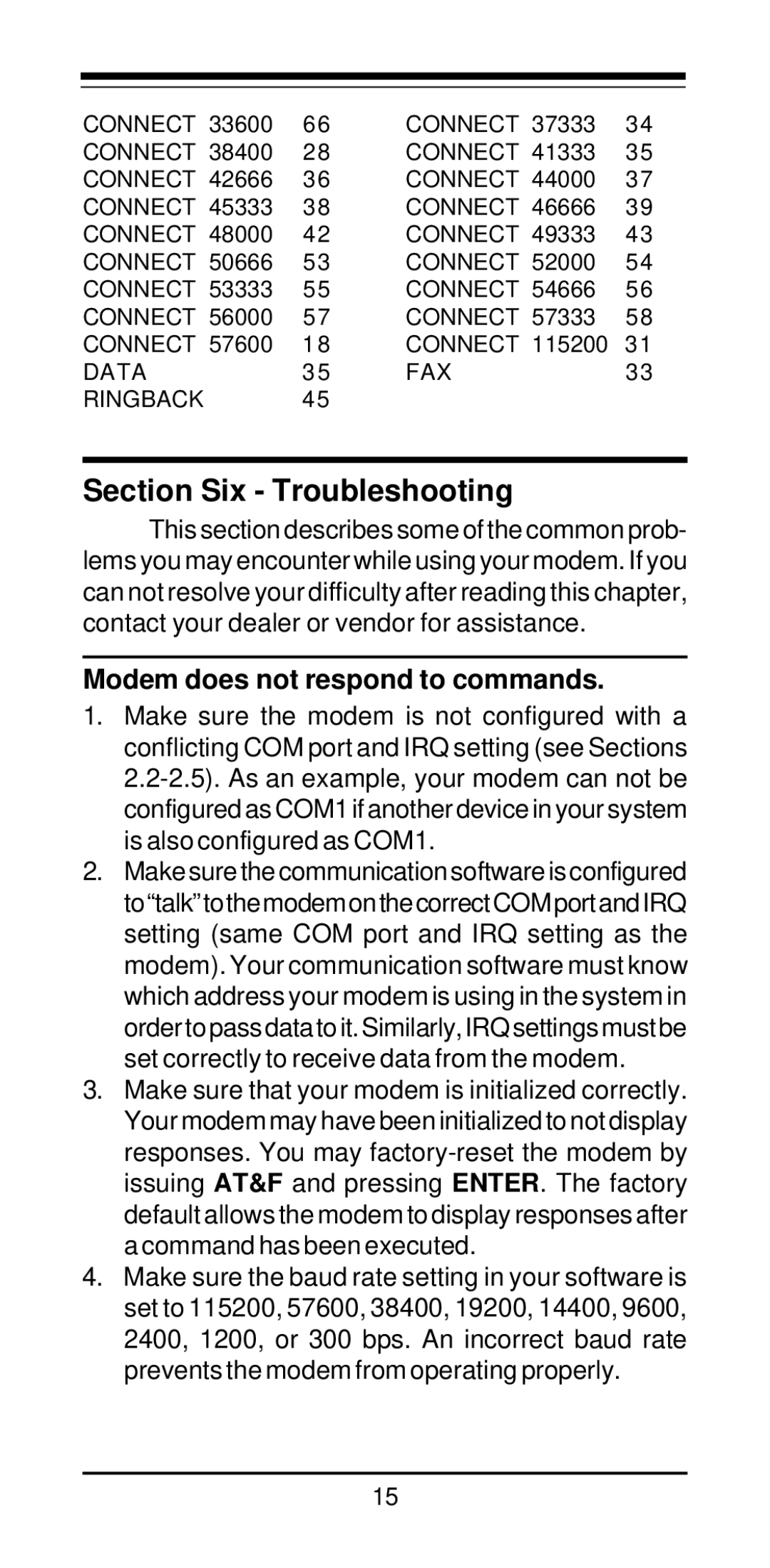
CONNECT 33600 | 66 | CONNECT 37333 | 34 |
CONNECT 38400 | 28 | CONNECT 41333 | 35 |
CONNECT 42666 | 36 | CONNECT 44000 | 37 |
CONNECT 45333 | 38 | CONNECT 46666 | 39 |
CONNECT 48000 | 42 | CONNECT 49333 | 43 |
CONNECT 50666 | 53 | CONNECT 52000 | 54 |
CONNECT 53333 | 55 | CONNECT 54666 | 56 |
CONNECT 56000 | 57 | CONNECT 57333 | 58 |
CONNECT 57600 | 18 | CONNECT 115200 | 31 |
DATA | 35 | FAX | 33 |
RINGBACK | 45 |
|
|
Section Six - Troubleshooting
This section describes some of the common prob- lems you may encounter while using your modem. If you can not resolve your difficulty after reading this chapter, contact your dealer or vendor for assistance.
Modem does not respond to commands.
1.Make sure the modem is not configured with a conflicting COM port and IRQ setting (see Sections
2.Make sure the communication software is configured to“talk”tothemodemonthecorrectCOMportandIRQ setting (same COM port and IRQ setting as the modem). Your communication software must know which address your modem is using in the system in order to pass data to it. Similarly, IRQ settings must be set correctly to receive data from the modem.
3.Make sure that your modem is initialized correctly. Your modem may have been initialized to not display responses. You may
4.Make sure the baud rate setting in your software is set to 115200, 57600, 38400, 19200, 14400, 9600, 2400, 1200, or 300 bps. An incorrect baud rate prevents the modem from operating properly.
15
